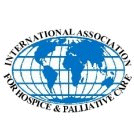Contribution from IAHPC Board Member Dr. Derek Doyle
As some readers may know I am a retired consultant physician who is proud to have been a member of the IAHPC almost since its foundation by Jo Magno. Last year I celebrated 40 years of involvement in palliative care. I was invited by the Editor of this Newsletter to write a ‘few words’. I realised it would be wrong of me to comment on clinical or organisational matters, but I think what might interest readers are some of the questions and comments that people have sent to me. As we all know, e-mail confers a degree of anonymity so messages come from all over the world either asking for my views on palliative care matters or offering comments to provoke responses from me. I never thought that fast-approaching old age would make me what we call in English “an agony aunt”! Here are some of the questions and my response.
“Did you and other pioneers ever think that hospice care would develop as it has done?” The answer is an emphatic No! I can even speak for Dame Cicely Saunders who is credited with being the Founder of the modern hospice movement. She once told me that delighted as she was to see the principles being adopted worldwide she never expected that, nor did she see it as a goal for her pioneering work.
“Why have these principles spread worldwide as they have done?” Perhaps social anthropologists / historians a century from now will be able to answer that question? Today we can only make a few suggestions. The public recognized that great as were the many advances in modern medicine, dying people were suffering unnecessarily. A few doctors and many nurses agreed with them. Most of the pioneers came from a tradition of the Christian missionary zeal, they were familiar with the challenges of trying to change and improve matters, and were willing to dedicate their lives to improving the lot of their fellow men and women. Pioneers like Saunders and Mount were very persuasive!
“So, you are saying palliative care professionals must be “Bible thumpers”? No, Christianity does not hold any monopoly on care and concern. Both care and concern are shared by all of the world’s great religions. Indeed, one does not need to be religious to be able to offer spiritual care as hospice doctors and nurses do every day - I hope. The fundamental requirements are a well-thought-through personal philosophy of life, and springing out of that, a deep and non-judgmental compassion for all in need. Having said that, I am upset that our modern society, certainly in the affluent West, is so secularised. I have seen so many coming to the end of life envying and searching for the certainties of the faith their parents had.
“I think providing hospice/ palliative care is more difficult for us today than it was in your day!.” Well, I know it’s tough for you, but I should hate that it would be as tough as it was for us 30-40 years ago! People wondered what we were talking about; didn’t believe patients were suffering or, if they did, said there was nothing they, or we, could do about it; nothing was taught in medical school or nursing college; most assumed that the atmosphere of a hospice would be unmitigated misery. Doctors suspected us, whilst politicians either feared or ignored us.
“What have been the “successes” of the Hospice Movement?” That it is alive and flourishing; that it is well enough defined, researched and accepted to be a medical and nursing specialty in many countries; that health care planners know a little about it; that it is much better taught (and in a few centres, examined) than 30-40 years ago; that so many excellent doctors, nurses and allied health professionals are now coming into it and, last but not least, because patients ask for it and praise it more highly than most of us feel we deserve.
“Are there aspects of modern hospice and palliative care that you are uneasy about?”
I feel very anxious about this target-driven culture we are in. Some managers seem to know little about palliative care, think you can measure and evaluate everything by ticking a few boxes. Hospice/palliative care pioneered a return to personalised, bedside care, something we were and are in danger of loosing in our increasingly technical hospital culture. We must find better ways of exploring and analysing human need and the effectiveness of treatments than to have doctors and nurses spending valuable time ticking boxes.
“I never expected to hear so much about euthanasia and physician-assisted suicide as I have done since I came here as a doctor. Patients never mention it, some relatives do, but the media are always asking about it. Has it always been like this and will it get better?” I was never once asked about it by a patient, but was offered thousands of pounds by relatives wanting me to perform it which, of course, I never did. I think it will get worse because our society increasingly wants “the easy way out”, wants “the quick fix” or thinks that money will buy anything, even the conscience of a doctor. I feel very strongly that if for any reason we in hospice/palliative care offer any form of euthanasia or PAS we shall have sold our soul and betrayed all our pioneers and the thousands who have followed them.
Why do you keep asking people to join IAHPC? IAHPC may not help you, but your support will most certainly help many in some of the neediest places in the world. I don’t know of any other organisation that achieves so much good with such modest funds. If we all want the progress of the past 40 years to continue, join the IAHPC ! |

